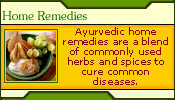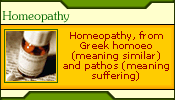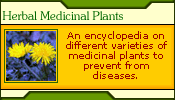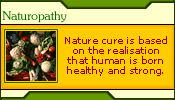|
Vitamin B5 or pantothenic acid helps in cell building, main- taining
normal growth and development of the central nervous system. It
stimulates the adrenal glands and increases the production of cortisone
and other adrenal hormones. It is essential for conversion of fatty
and sugar to energy. It also helps guard against most physical and
mental stresses and toxins and increases vitality. The main sources
of this vitamin are whole grain bread and cereals, green vegetables,peas
, beans, peanuts and egg yolk. It can be synthesised in the body
by intestinal bacteria. A deficiency can cause chronic fatigue,
hypoglycemia, greying and loss of hair, mental depression, stomach
disorders , blood and skin disorders.
The minimum daily requirement of this vitamin has not been established,
but is estimated to be between 30 and 50 mg a day. The usual therapeutic
doses are 50 to 200 mg. In some studies, 1,000 mg or more were given
daily for six moths without side effects. It is useful in the treatment
of insomnia, low blood pressure and hypoglycemia or low blood sugar.
Pantothenic acid, also known as vitamin B5, as well as the "anti-stress
vitamin" is part of the B group vitamins and classified as
a water-soluble vitamin. This nutrient can be manufactured in the
body by the intestinal flora.
Vitamin B5 - pantothenic acid - is required
for
Vitamin B5 plays an important role in the secretion of hormones,
such as cortisone because of the role it plays in supporting the
adrenal gland. These hormones assist the metabolism, help to fight
allergies and are beneficial in the maintenance of healthy skin,
muscles and nerves.
Pantothenic acid is also used in the release of energy as well
as the metabolism of fat, protein and carbohydrates. It is used
in the creation of lipids, neurotransmitters, steroid hormones and
hemoglobin.
Some are of the opinion that pantothenic acid is also helpful to
fight wrinkles as well as graying of the hair.
Deficiency of vitamin B5
With Vitamin B5 in short supply symptoms like fatigue, headaches,
nausea, tingling in the hands, depression, personality changes and
cardiac instability have been reported.
Frequent infection, fatigue, abdominal pains, sleep disturbances
and neurological disorders including numbness, paresthesia (abnormal
sensation such as "burning feet" syndrome), muscle weakness
and cramps are also possible indications that this nutrient is in
short supply.
Biochemical changes include increased insulin sensitivity, lowered
blood cholesterol, decreased serum potassium, and failure of adrenocorticotropin
to induce eosinopenia.
Dosage
The dosage underneath is the Recommended Dietary Allowance (RDA),
but be aware that this dosage is the minimum that you require per
day, to ward off serious deficiency of this particular nutrient.
In the therapeutic use of this nutrient, the dosage is usually increased
considerably, but the toxicity level must be kept in mind.
No recommended dosage but 10 - 100 mg is indicated.
Toxicity and symptoms of high intake
It does not appear to be toxic in high dosage, although diarrhea,
digestive disturbances and water retention have been reported on
dosage exceeding 10 g a day.
Taking 1,500 mg a day over an extended period may cause sensitivity
to the teeth.
Best used with
It is most effective when taken with the B group vitamins, Vitamin
A, vitamin C and Vitamin E
When more may be required
People under stress, prone to allergies, consuming alcohol or eating
too many refined foods might develop a shortage of this vitamin.
Enemy of vitamin B5
Pantothenic acid can be lost in cooking - particularly with roasting
or milling, as well as when exposed to acids like vinegar, or alkali
such as baking soda. It is also destroyed to a large degree in canning.
Other interesting points
Do not add soda to the water when cooking vegetables - it will
destroy the pantothenic acid.
Food sources of vitamin B5
Beef, brewer's yeast, eggs, fresh vegetables, kidney, legumes,
liver, mushrooms, nuts, pork, royal jelly, saltwater fish, torula
yeast, whole rye flour, and whole wheat.
|


















